Data als schatkisten
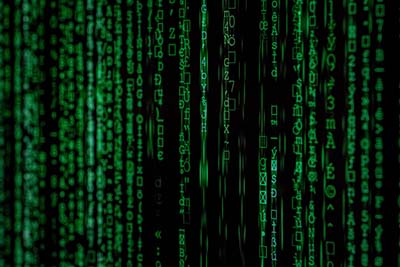
Data als schatkisten
Open data, big data, digitalisering…. Termen die steeds vaker opduiken en onderzoek blijvend hebben veranderd. Grote hoeveelheden data zijn als schatkisten vol informatie, die onze visie op verleden en heden veranderen en die zelfs verwachtingen voor de toekomst kunnen bieden. Of het nou gaat om ons uitgavenpatroon, ziektes, veiligheid, energie – data zeggen veel over ons (toekomstig) gedrag. Maar we zijn ook op onze hoede voor data, of het beschikbaar stellen daarvan. Zoals hoogleraar Marcel Broersma het zegt: ‘Digitalisering en big data zijn een motor, bijvoorbeeld om de gezondheidszorg te verbeteren. We kunnen ziektes opsporen nog voordat die zich bij mensen openbaren. Tegelijkertijd leidt digitalisering tot allerlei problemen rond privacy of ziektekostenverzekeringen.’
Onderzoekers aan de RUG maken op diverse manieren gebruik van big data. Hieronder vindt u een selectie van artikelen die meer inzicht bieden in de mogelijkheden van big data.
Video's
Interviews en nieuwsberichten
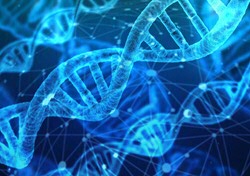
Data Science: een frisse wind door fysica, genetica en geschiedenis
Er zijn weinig onderzoekers die met zoveel verschillende wetenschapsgebieden in aanraking komen als de data scientists van het CIT, het Centrum voor Informatie Technologie van de RUG. Het team voert een dertigtal projecten uit voor de meest uiteenlopende afdelingen van de universiteit.
Lees meer
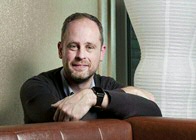
Heel de wereld kijkt naar Groningen voor historische economische data
Robert Inklaar heeft over aandacht niet te klagen. Het werk van de hoogleraar Economie van Productiviteit en Welvaart en zijn collega’s staat wereldwijd in de belangstelling. Hun herziene versie van de Maddison Project Database, een schatkist vol historische cijfers om de economische ontwikkeling van landen mee te verklaren, leidde tot trending grafieken op de sites van de New York Times en Our World in Data. Robert vertelt in een interview over wat het Nederland van 200 jaar geleden ons leert over hedendaags Ivoorkust.
Lees het interview
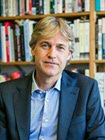
De toekomst is digitaal, nu jij nog
Voor zijn promotieonderzoek naar de geschiedschrijving van de Leeuwarder Courant analyseerde Marcel Broersma jaren geleden vergeeld krantenpapier. Door de intrede van digitalisering verschoof zijn onderzoek naar sociale media, nieuwe vormen van mediagebruik en machine learning. De hoogleraar Media en Journalistieke Cultuur over zijn missie: de Groningse samenleving voorbereiden op een digitale toekomst.
Lees het interview
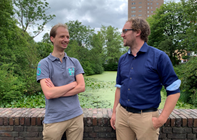
Open Science: transparantie voor alles
Phd’s Psychiatrie Maurits Masselink, Daan Ornée en senior onderzoeker Jojanneke Bastiaansen (UMCG) zijn de enthousiaste medeoprichters en pleitbezorgers van de Open Science Community Groningen (OSCG) dat mede is opgericht door collega’s van de Faculteit Behavioural and Social Sciences. OSGG is een van de landelijke open science ontwikkelingen dat omarmd wordt in Groningen. Maurits en Daan gaan in gesprek over Open Science en Open Data.
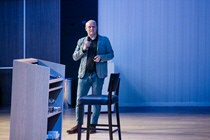
De beste sollicitant dankzij kunstmatige intelligentie
Op zoek naar spelden in gigantische virtuele hooibergen? Punaises? Nietjes? Wanneer een klant grote hoeveelheden digitale data beschikbaar stelt aan de medewerkers van Target Holding, weten zij er raad mee. Met behulp van kunstmatige intelligentie kunnen opzienbarende resultaten worden behaald. Bijvoorbeeld digitaal sollicitatiebrieven analyseren.
Lees het interview
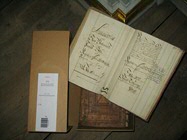
Sonttolregisters: de reizen van je voorouders als bron van informatie
Onderzoekers en geschiedenisliefhebbers smullen ervan: de Sonttolregisters, 350 jaar informatie over doorvaarten door de Sont. Dankzij het digitaliseringsproject Sonttolregisters Online (STRO) kan iedereen, gewoon thuis achter zijn computer, digitaal dwalen door de geschiedenis.
Lees het interview
Geodienst
De Geodienst van de RIUG is het enige organisatiebrede universitaire ruimtelijk expertisecentrum van Nederland. De Geodienst is centraal aanspreekpunt voor technologische innovatie op het gebied van toepassingen van ruimtelijke informatietechnologie (data, software, visualisatie). Multidisciplinaire specialisten op het gebied van spatial computing en Geografische Informatie Systemen (GIS) ondersteunen wetenschappelijk onderzoek met maatwerk software, analytics en visualisaties.
Een kaart van de Geodienst
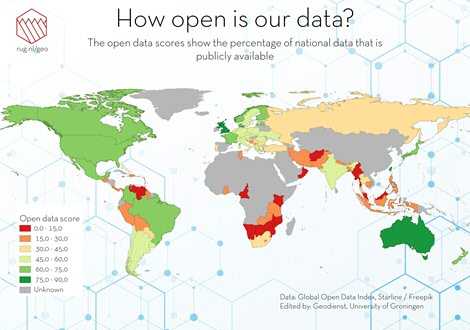
Uitleg bij de kaart: De scores over nationale data worden bepaald op basis van de openbaarheid van verschillende nationale datasets waar onder: Overheidsbudget, nationale statistieken, wetten, bedrijfsregister en verkiezingsuitslagen. Kijk op de Global Open Data Index voor de volledige beschrijving van de dataset.
Meer weten? Bezoek de site van de Geodienst.
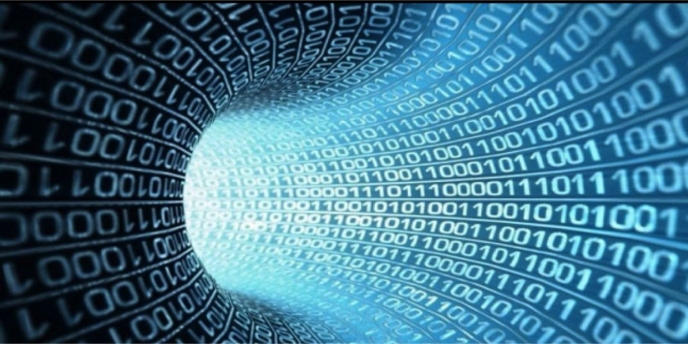
Data Science en Data Management
Data science gaat over het ontdekken van verborgen patronen in data. Waar ICT-infrastructuur en applicaties het verzamelen van grote hoeveelheden data mogelijk maken, is het de data scientist die deze hoeveelheden kan omzetten naar waardevolle informatie. Het Centrum voor Informatie Technologie heeft expertise op het gebied van data binnen de Rijksuniversiteit Groningen. Ons Data Science team ondersteunt onderzoekers bij het verkrijgen en analyseren van data en het ontwikkelen van tools voor data science. Jaarlijks kunnen zij ondersteuning aanvragen van één of meer van onze data scientists voor maximaal 450 uren via de Call For Proposals. Daarnaast wordt ook hulp geboden bij het schrijven van een onderzoeksvoorstel. Het Research Data Office ondersteunt onderzoekers bij het verzamelen, opslaan en presenteren van onderzoeksdata.
Data Federation Hub
De Data Federation Hub (DFH) is een organisatie die verschillende initiatieven op het gebied van research data bij de Rijksuniversiteit Groningen (UG) en het Universitair Medisch Centrum Groningen (UMCG) met elkaar verbindt en voortbouwt. De DFH verbindt en bevordert groepen ondersteuners die wetenschappers helpen om innovatief onderzoek in Noord-Nederland te leveren.
Uitgaven RUG Industry Relations
-
Digital society
-
Big data
